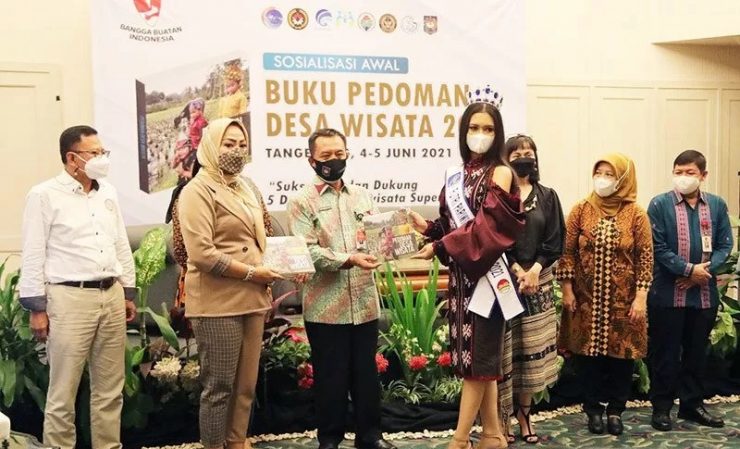THE Indonesia’s Government through the Coordinating Ministry for Maritime Affairs and Investment finally launched the Guidebook as well as the Initial Socialization of the Tourism Village Guidebook in Tangerang, Friday (6/4).
According to the Deputy for Coordination of Tourism and Creative Economy of the Coordinating Ministry, Marves Odo R.M. Manuhutu in a statement in Jakarta, said the Tourism Village Guidebook was prepared together with seven other ministries, namely the Coordinating Ministry for Human Development and Culture, Ministry of Home Affairs, Ministry of Communication and Information, Ministry of Maritime Affairs and Fisheries, Ministry of Villages, Development of Disadvantaged Regions and Transmigration. Ministry of Tourism and Creative Economy, and Ministry of Women’s Empowerment and Child Protection.
“Development of Tourism Villages based on culture-based tourism will have a positive impact on the people’s economy. Let’s make 224 tourist villages as new economic growth nodes. Not only big cities, but villages can also make a big contribution to the Indonesian economy,” said Odo RM Manuhutu.
Odo hopes that after the socialization is carried out, implementation can be carried out immediately through cooperation and synchronization at both the central and regional levels. Thus, in the end, it can increase the benefits of tourist villages for development and improve community welfare.
Meanwhile, the Expert Staff of the Minister of Inter-Institutional Relations at the Ministry of Villages, Development of Disadvantaged Regions and Transmigration, Samsul Widodo explained that the purpose of the Tourism Village Guidebook is so that all parties involved in the development of tourist villages, both agencies and individuals, can have the same guidelines.
“This is needed so that there are no more debates and miscommunication or miscoordination in the process of developing a tourist village that involves many stakeholders,” he said.
Likewise, the Director General of Village Government Development, Ministry of Home Affairs, Yusharto Huntoyungo said that according to the Guidebook, it is also in line with Law Number 6 of 2014 concerning Villages. This law provides greater flexibility for the village as the lowest form of government, and is expected to make a significant contribution.
Yusharto added that one of the efforts made was to increase tourism potential at the village level to be managed in such a way as to become an economic potential. Therefore, the Tourism Village Guidebook is the fruit of the work of cross-ministerial and institutional.
At the same occasion, Deputy for Resources and Institutions of the Ministry of Tourism and Creative Economy, Wisnu Bawa Tarunajaya said that the current trend of outdoor tourism was considered an opportunity to develop tourist villages as alternative tourist destinations that could make rural activities and local traditions of the community as attractions.
He also said that the guide to sustainable tourism village development contained in the 2021 Tourism Village Guidebook is one way to support several points from the Sustainable Development Goals (SDGs).
“This book is expected to support the SDGs such as reducing poverty levels, community welfare, creating job opportunities, and improving education for the community,” he concluded. [antaranews]
















